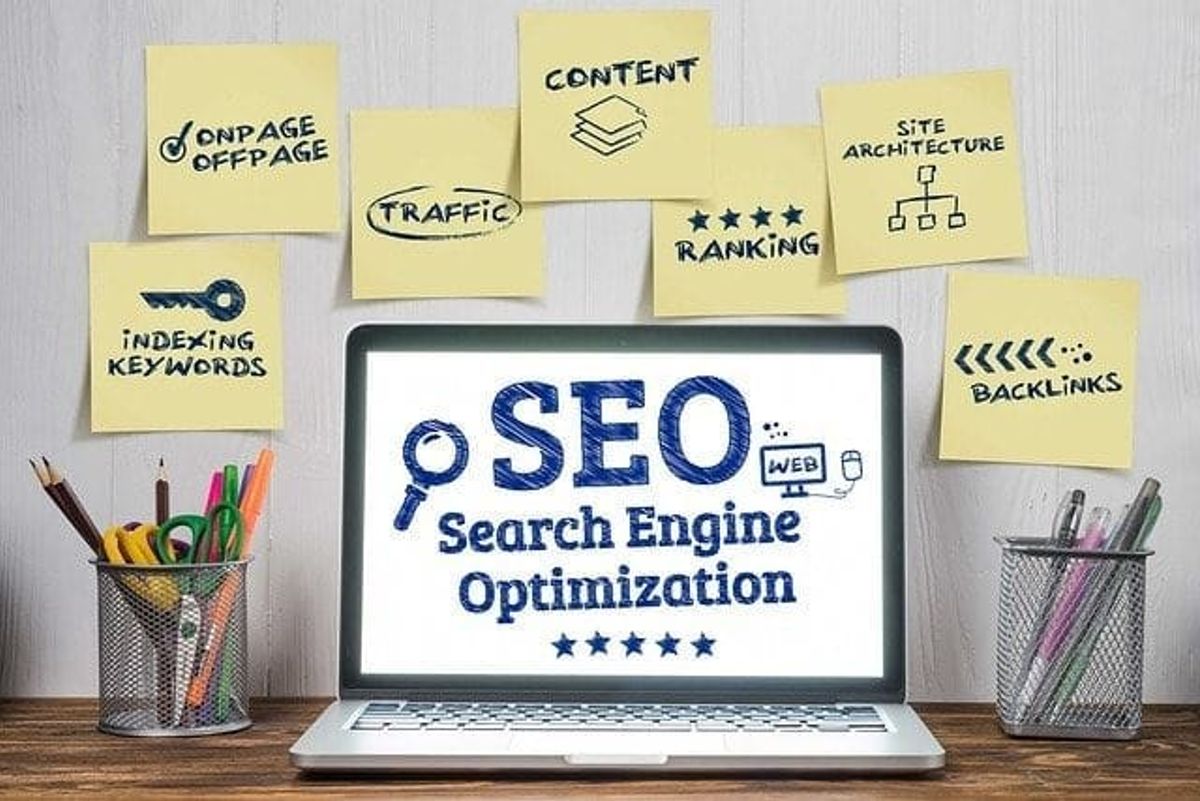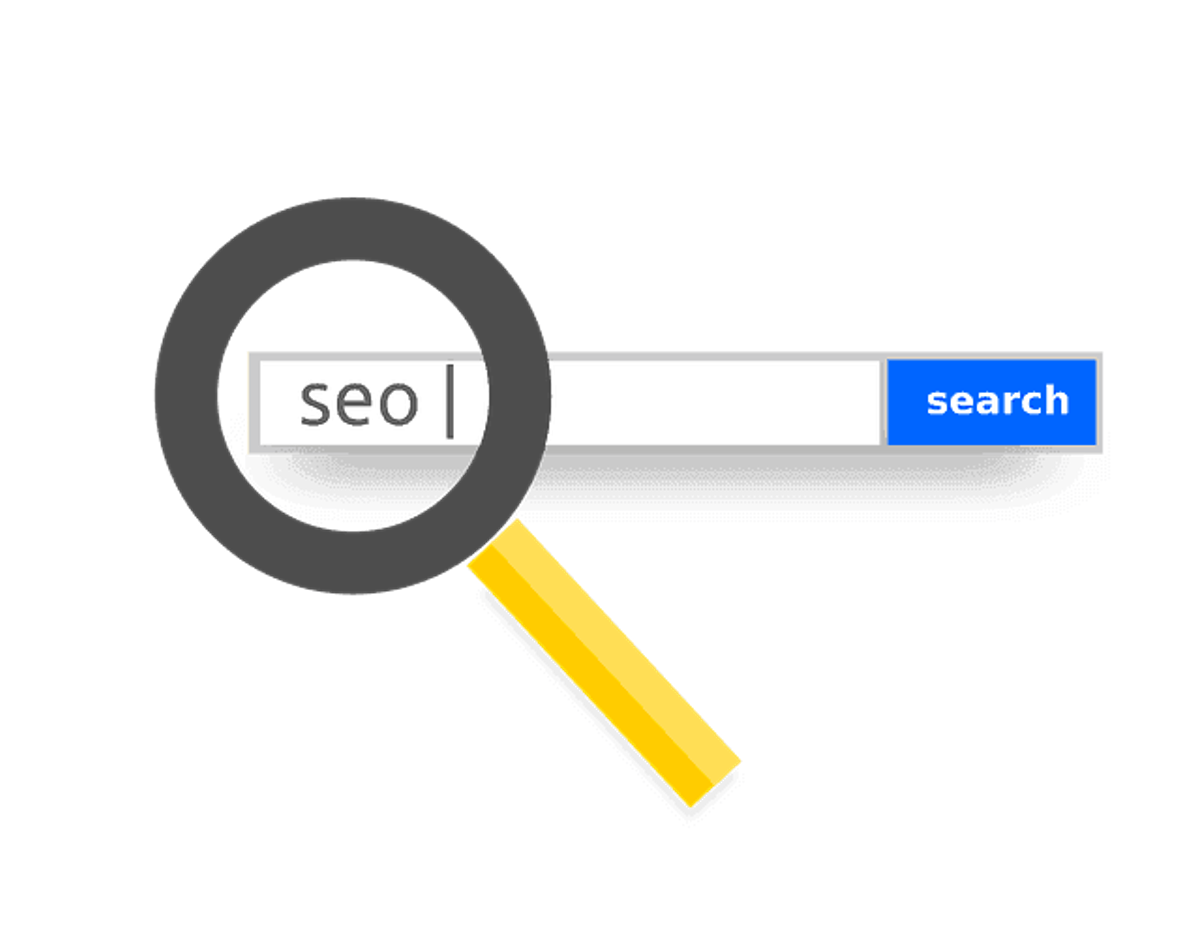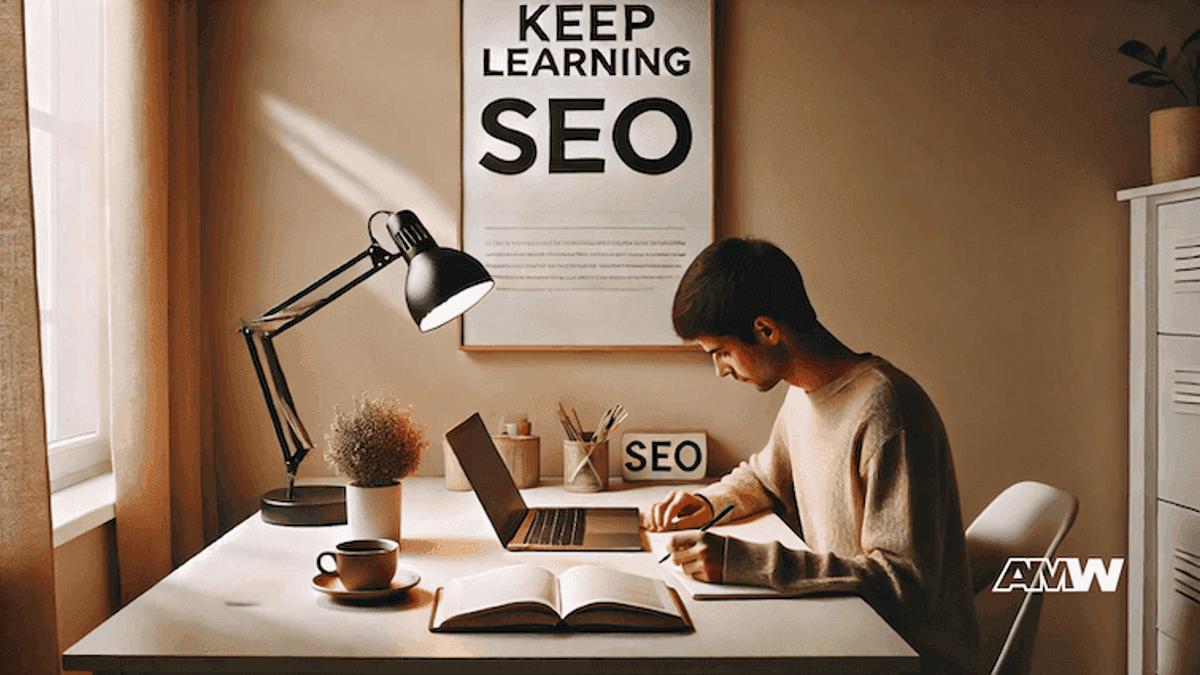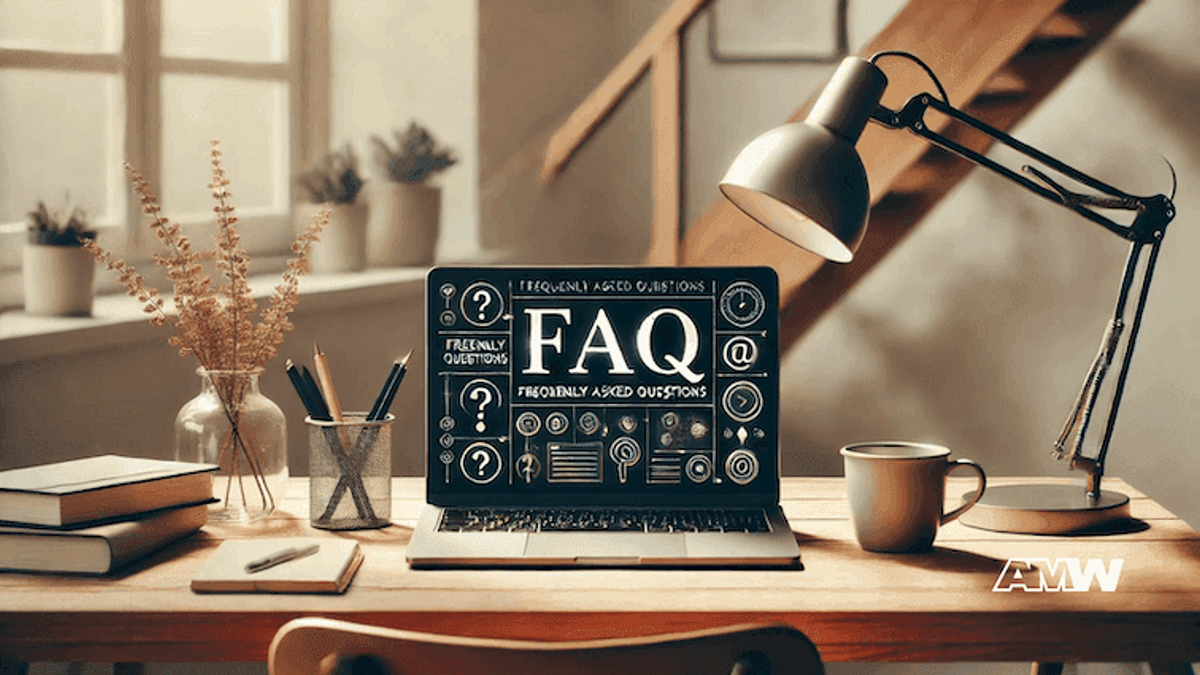What is SEO?

So, you've probably heard the term "SEO" tossed around, but what does it actually mean?
Quick Summary
Understanding SEO—Search Engine Optimization—is crucial for improving your website's visibility in search results. By enhancing its relevance and authority, you can attract more organic traffic without the need for paid ads. Key components of SEO include keyword research, on-page SEO, and technical SEO, which collectively ensure that your site is user-friendly and easily indexed by search engines. Consistent effort in refining these strategies can yield significant long-term benefits.
SEO means Search Engine Optimization, and it's basically how you make sure people can find your website when they search for something online.
When you search for something on Google, Bing, or any other search engine, you see a list of results. SEO is about improving your website's relevance and authority, so it appears higher in search engine results pages (SERPs), increasing visibility to users.
Ready to Grow Your Business?
Get a custom strategy tailored to your goals.
How Search Engines Work

Understanding SEO helps one know how search engines work.
When you type something into Google Search (or other search engines), you're triggering a process where web crawlers (bots) scan millions of web pages to find the best possible match for what you're looking for.
These crawlers build a search index—a huge database of all the content they've found online. From there, search algorithms go to work, deciding what relevant results to show you based on things like your search queries, relevant keywords, and even your location.
The whole point of SEO is to make your website super easy for search engines to find so it can show up higher in regular search results.
Organic means you didn't pay for the spot—it's just there because Google or another search engine thinks your content is relevant to what people search for.
Why SEO Matters

Now, why should you care about SEO? Simple—because it brings organic traffic to your website. The higher you rank on search, the more people will click on your site.
The best part is that, unlike paid search (ads), this traffic is free. You're not paying for each visitor; you're just making your site more visible.
More organic search traffic means more chances to sell, grow, or share your message. Plus, good SEO makes your website better overall.
When you focus on improving things like page speed, site security, and website content, it's not just for search engines. It makes your site easier to use for everyone.
The Main Components of SEO

Let's dive into the key elements that make up SEO.
Keywords and Keyword Research
One of the most basic parts of SEO is understanding keywords. These are the words or phrases that people search for, like "best pizza in Chicago" or "how to learn SEO."
The process of finding the most relevant keywords to target is called keyword research. You'll use a keyword research tool to discover which keywords you should include on your website pages to attract more relevant traffic.
Using the right keywords in the right places on your site—like in your title tags, internal and external links, and even in your URLs—helps search engines figure out what your site is all about. Without good keywords, search engines won't know how to rank your site.
That's where SEO tools come in handy. They help you do keyword research, track your rankings, and improve your site.
Content and On-Page SEO
Good content is super important for SEO. Your website's content really matters for search engine optimization. On-page SEO (on-page optimization) is about making sure your website's content is easy for search engines and users to get.
You'll need to optimize things like:
- Title tags: The titles that show up in the search results.
- Internal linking: Links within your site that help users (and crawlers) navigate.
- External links: Links pointing from your site to other websites.
- Relevant content: Information on your site that actually answers the user's search query.
- Page speed: How fast your site loads. Slow pages can hurt your rankings.
Having relevant content on your site, filled with the right keywords, is important for SEO success.
And this isn't just written content—you should also consider video SEO, images, and other media. The better the content, the more likely it is to rank.
Technical SEO
Then there's technical SEO. This covers things like making sure your site is easy for crawlers to understand, fixing broken links, and optimizing your site structure.
It also includes security measures like using HTTPS for site security and improving mobile usability. If your site isn't technically sound, it's going to be hard for you to rank, no matter how good your content is.
Technical SEO also includes technical optimization, such as improving your site's performance on both desktop and mobile. This includes making sure your website pages are responsive and load quickly.
Ready to Grow Your Business?
Get a custom strategy tailored to your goals.
Faster websites not only rank better but also offer a smoother experience for visitors, which can reduce bounce rates.
Off-Page SEO
Not all SEO happens on your site. Off-page SEO focuses on building authority through off-page optimization strategies like external links (also known as incoming links or backlinks). These are links from other sites that point to your page.
The better backlinks you have, the more search engines find your site to be relevant and trustworthy. This can lead to higher search rankings.
Good off-page SEO also involves getting mentions from other websites, the press, and even social media. The more places people talk about or link to your site, the better your chances of ranking high in organic search results.
Local SEO and Search Engine Marketing
If your business operates in a specific area, you'll want to focus on local SEO. This is a type of SEO that helps your website show up in local search results.
When people search for "pizza near me" or "plumber in New York," local SEO helps your business be found by those potential customers.
You can use different tools to keep track of how your SEO is doing and make your SEO strategy better. These tools provide insights into what keywords you rank for, how much organic traffic you're getting, and how users interact with your site. Using these tools effectively can make a huge difference in your SEO success.
Types of SEO: What You Need to Know

Now that we've covered the basics, let's talk about the types of SEO. There's more than one way to approach search engine optimization, and each has its own purpose.
The main types are:
On-Page SEO
As mentioned earlier, on-page optimization deals with making sure the content on your website pages is clear to both users and search engines.
It's about using relevant keywords in the right places, like in headings, meta descriptions, and the body of your text.
Off-Page SEO
Off-page SEO is about making your website trustworthy and authoritative. This mostly happens by earning incoming links (backlinks) from other sites.
The more external links from reputable sites that point to you, the more search engines see your site as valuable. It's like getting a recommendation from a trusted friend.
Technical SEO
This involves all the behind-the-scenes stuff that helps your site function smoothly and makes it easier for web crawlers to index your content.
This includes tasks like improving page speed, fixing broken links, using schema markup, ensuring mobile-friendliness, and securing your site with HTTPS.
Local SEO
If your business is location-based, like a restaurant or a local shop, local SEO helps you show up in location-specific searches. Think "dentist near me" or "best pizza in Chicago."
Local SEO focuses on getting your business listed in places like Google Maps and ensuring your name, address, and phone number are consistent across the web.
Video SEO
With the rise of video content, video SEO is becoming more important. It's about optimizing your video content so that it shows up in both Google search results and platforms like YouTube.
This includes using the right titles, descriptions, and relevant keywords for your videos.
How to Start With SEO

If you're new to SEO, don't worry. You don't have to be an SEO specialist or a digital marketing expert to get started. Here are some simple steps to improve your site's SEO:
Do Keyword Research
You need to know what your audience is searching for. Use a keyword research tool to find keywords that match what your website is about. Once you have a list, incorporate those keywords naturally into your content, but focus on search intent and user experience rather than keyword density.
Avoid keyword stuffing—search engines are smarter than that. The goal is to write for people, not just for bots.
Ready to Grow Your Business?
Get a custom strategy tailored to your goals.
Create High-Quality Content
Focus on making relevant content that answers your audience's questions. Think about search intent—what is the user really looking for when they type a particular phrase? Address that need clearly in your content.
Optimize On-Page Elements
Title tags, meta descriptions, and headings should have your main keywords. Use internal links to help people find their way around your site, and make sure to link to other trusted websites.
Improve Your Website's Technical SEO
Make sure your site is not just about content but also technically sound. It should load fast, be secure, and work well on mobile devices. A slow, clunky website can hurt your search rankings even if you have great content.
Remember to utilize Google Search Console and Analytics to monitor your site's structure and performance.
Build Backlinks
Focus on getting inbound links from reputable sites. This could be through guest posting, partnerships, or even just creating content that other people want to link to.
Backlinks are crucial for showing search engines that your site is trustworthy.
SEO Takes Time, But It's Worth It

SEO isn't a quick fix. It takes time and effort to see real results. But the beauty of SEO is that once it starts working, it's like a snowball rolling downhill—your traffic grows organically without the need to constantly pump money into ads.
SEO is a long-term strategy. While you might not see immediate changes in your organic search traffic, consistent efforts can lead to significant improvements over time.
The key is to keep refining your SEO strategy, stay updated on industry changes, and never stop improving your website content.
Tracking Your SEO Success

How do you know if your SEO efforts are paying off? That's where SEO tools like Google Analytics and Search Console come in.
These tools let you see how much organic traffic your site is getting, which pages are performing the best, and what keywords are driving that traffic.
Keep an eye on your progress so that you can make changes to your SEO work as needed. Maybe some of your pages aren't ranking as high as they should be.
In that case, you might need to improve the content or work on getting more external links.
Keep Learning SEO

The world of SEO is always changing. New updates to search algorithms can shake things up, so it's important to stay informed.
There's always something new to learn, whether it's video SEO, local SEO, or new ways to improve your technical optimization.
The best part is you don't need to be an SEO professional to start seeing results. With a bit of research and some of the best SEO tools, anyone can improve their search engine rankings.
Final Thoughts

SEO is all about helping people find your website when they search for something online. Whether you're a small business, a blogger, or an e-commerce site, a good SEO strategy is key to growing your online presence.
By focusing on relevant content, improving your site structure, and building incoming links, you can set yourself up for long-term SEO success.
FAQ

How much does SEO cost?
SEO can be done for free if you're willing to learn, but many businesses hire professionals. Costs can vary widely.
How long does it take to see results?
It varies. To see results, it can take anywhere from 3 to 6 months or longer, depending on the competition and effort put into SEO.
Can I do SEO by myself?
Yes, with enough time and research, you can definitely handle basic SEO yourself.
What's the difference between SEO and paid ads?
SEO is organic, meaning you don't pay for your site to appear in search results. Paid ads (like Google Ads) are when you pay for placement.

Ready to Grow Your Business?
Get a custom strategy tailored to your goals.
Frequently Asked Questions
How long does it take to see results from SEO?
SEO results typically take 3-6 months to become noticeable, with significant improvements often taking 6-12 months. The timeline depends on factors like your website's current authority, competition level, content quality, and how consistently you implement SEO strategies. New websites generally take longer than established sites. Technical fixes and on-page optimizations may show faster results, while building domain authority through backlinks and content creation requires more time to impact search rankings.
What's the difference between SEO and paid advertising?
SEO focuses on earning organic (free) traffic through optimizing your website for search engines, while paid advertising involves paying for immediate placement in search results. SEO takes longer to show results but provides sustainable, long-term traffic without ongoing costs per click. Paid ads deliver instant visibility but require continuous investment. SEO builds credibility and trust since users prefer organic results, whereas paid ads are clearly marked as advertisements and may have lower click-through rates.
How much does SEO cost for a small business?
SEO costs for small businesses vary widely depending on approach. DIY SEO using free tools costs only time investment. Professional SEO agencies typically charge $500-$3,000 monthly, while freelance SEO specialists range from $300-$1,500 monthly. One-time SEO audits cost $1,000-$5,000. Factors affecting price include industry competition, website size, local vs. national targeting, and service scope. Many small businesses start with basic local SEO and keyword optimization before investing in comprehensive strategies.
Can I do SEO myself without hiring an expert?
Yes, you can learn and implement basic SEO yourself using free resources and tools. Start with keyword research using Google Keyword Planner, optimize your website's title tags and meta descriptions, create quality content around target keywords, and improve page speed. However, technical SEO, advanced link building, and competitive industries may require professional expertise. Many businesses successfully handle on-page optimization and content creation while outsourcing technical aspects to specialists for optimal results.
What are the most important SEO ranking factors in 2024?
The most critical SEO ranking factors include high-quality, relevant content that matches search intent, mobile-friendliness, page loading speed, and user experience signals. Technical factors like secure HTTPS connections, proper site structure, and clean code are essential. Off-page factors include authoritative backlinks from reputable websites and positive user engagement metrics. Google also prioritizes expertise, authoritativeness, and trustworthiness (E-A-T), especially for health, finance, and news content. Core Web Vitals measuring page experience remain crucial ranking signals.
How do I choose the right keywords for my website?
Start by brainstorming terms your target audience uses to find your products or services. Use keyword research tools like Google Keyword Planner, Ubersuggest, or SEMrush to discover search volumes and competition levels. Focus on a mix of high-volume competitive terms and long-tail keywords with lower competition. Consider user intent—informational, navigational, or transactional searches. Choose keywords relevant to your business with reasonable search volume and manageable competition. Prioritize local keywords if you're a location-based business.
What's the difference between on-page and off-page SEO?
On-page SEO involves optimizing elements within your website that you directly control, including content quality, title tags, meta descriptions, internal linking, keyword usage, page speed, and site structure. Off-page SEO focuses on external factors that build your website's authority and trustworthiness, primarily through earning backlinks from other reputable websites, social media mentions, online reviews, and brand citations. Both are essential—on-page SEO helps search engines understand your content, while off-page SEO demonstrates your site's credibility and relevance.
Related Resources
Calculators
Pricing Guides
Key Terms
Optimization of individual web page elements including content, HTML source code, and meta tags to rank higher in search results.
Keyword DifficultyA metric estimating how hard it would be to rank on the first page of search results for a specific keyword.
Content DecayThe gradual decline in organic traffic and rankings that content experiences over time as it becomes outdated or outranked.
Brand SalienceThe degree to which your brand comes to mind quickly and easily when customers think about your product category.
Answer Engine OptimizationOptimizing content for AI answer engines and conversational search interfaces.
Related Articles

Expert SEO Tips for Higher Rankings in Search Results
SEO is the backbone of online visibility. It ensures that your site appears in search when customers look for relevant keywords. Without effective SEO, even the most well-designed website can remai

The Role of SEO in Company Growth: Key Tactics and Benefits
SEO is about improving a website to rank higher in SERPs, increasing the site's visibility and driving organic traffic. By implementing an effective SEO strategy, companies can enhance their online pr

Top SEO Techniques Every Small Business Should Know
Top SEO Techniques Every Small Business Should Know Search engine optimization has become a critical component of digital marketing strategies for businesses of all sizes. However, for small busine